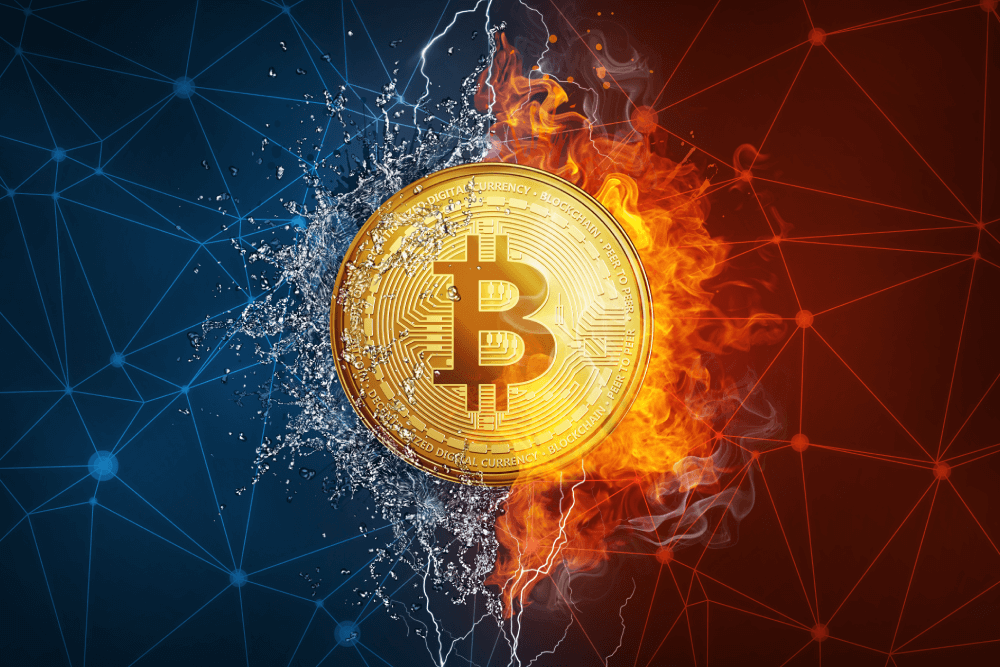The biggest bubble ever. Well, the biggest bubble of the past decade.
We need a collapse, and genuine panic and fear, which I believe is coming.

 www.coindesk.com
www.coindesk.com
We need a collapse, and genuine panic and fear, which I believe is coming.
It’s perhaps easy to see why the end of easy money might spell disaster for those invested in a highly leveraged crypto bubble, but it’s less obvious why it is causing bitcoin to sell off. You’d think it would encourage people to pile into deflationary cryptocurrencies like bitcoin. After all, bitcoin was originally intended to replace the dollar, and some people still think it eventually will. What better time to buy and HODL the world’s future currency than the start of the inflationary Armageddon that will bring about the demise of the dollar as the world’s principal reserve currency?
But most of those invested in cryptocurrency now don’t want to replace the dollar. Indeed, they fear its replacement. What they want is to get rich in dollar terms. So cryptocurrency prices are typically quoted in dollars, most crypto transactions involve stablecoins pegged to dollars, and dollar-pegged stablecoins are widely used as safe collateral for crypto lending.
The crypto ecosystem has tethered itself firmly to the traditional financial system, and the dollar dominates crypto markets just as it does traditional financial markets. And as crypto markets have grown, so has the dollar value of the cryptocurrency industry.
But these dollars aren’t real. They exist only in the virtual space. They are not, and never were, guaranteed by the only institution in the world that can create real dollars, namely the Fed. The Fed has no obligation whatsoever to ensure that those who have made life-changing amounts of these “virtual dollars” can actually exchange them for real dollars. So when the crypto bubble bursts, the “virtual dollars” simply disappear. If you can’t exchange your virtual dollars for real dollars, your wealth is an illusion.
The only real dollars in the cryptocurrency industry are those paid by new entrants when they make their first cryptocurrency purchases. The rest of the dollar liquidity on crypto markets is provided by dollar-pegged stablecoins. These fall into two groups: those that have actual dollars and/or dollar-denominated safe liquid assets backing them, and those that don’t. There aren’t enough of the former to enable everyone to cash out into real dollars, and there’s no guarantee that the latter can be cashed out into real dollars at all. So, in effect, the entire crypto industry is fractionally reserved.
There’s now a race on to exchange cryptocurrencies for the few real dollars still available. As is always the case in unregulated markets, the law of the jungle applies. Those with the biggest teeth get the dollars. Perhaps “whales” is the wrong name for them. Crocodiles might be more like it.
When everyone is trying to cash out cryptocurrencies into increasingly scarce dollars, cryptocurrency prices rapidly fall to the level at which there are sufficient dollars in the system for everyone to be able to cash out. For derivatives and synthetics, that probably means zero. After all, if the underlying assets are falling rapidly in price, who is going to want the derivatives? And synthetics are, as their name suggests, not real. When there’s a flight to reality, unreal things are worthless.

Why This Crypto Crash Is Different
There can be no return to the highly leveraged, fractionally reserved cryptocurrency system whose illusory riches are now giving way to real losses, says our columnist.

